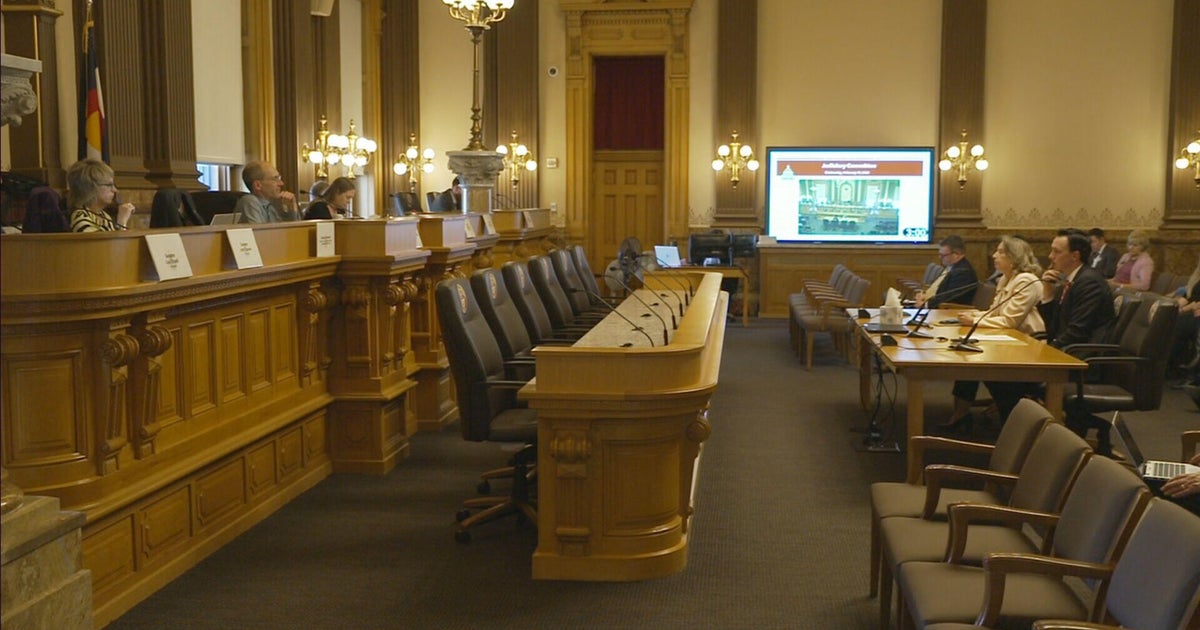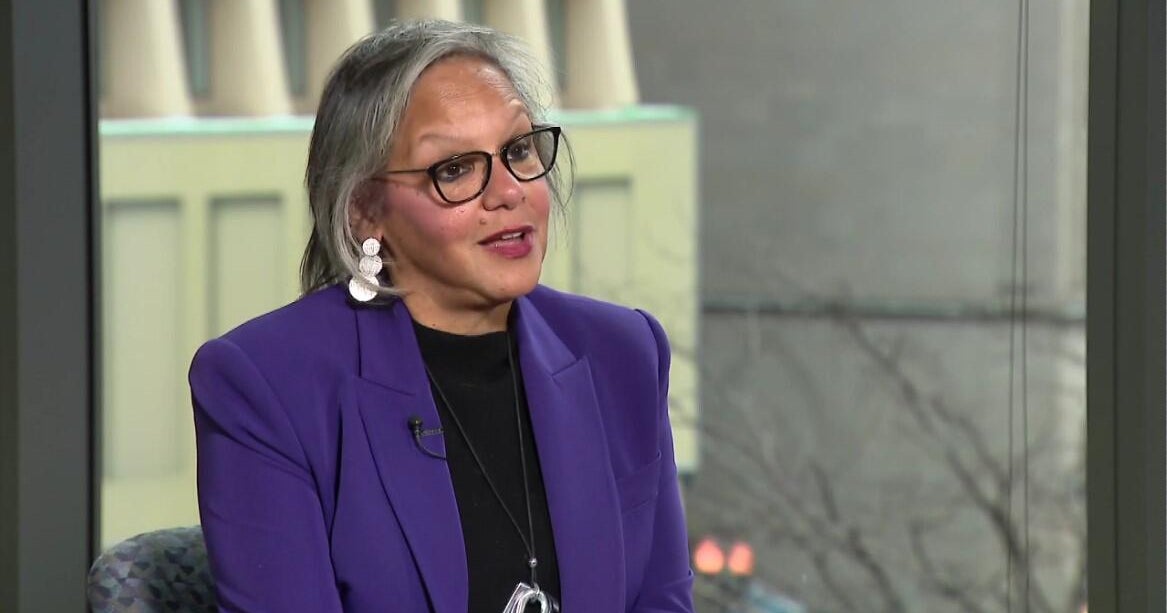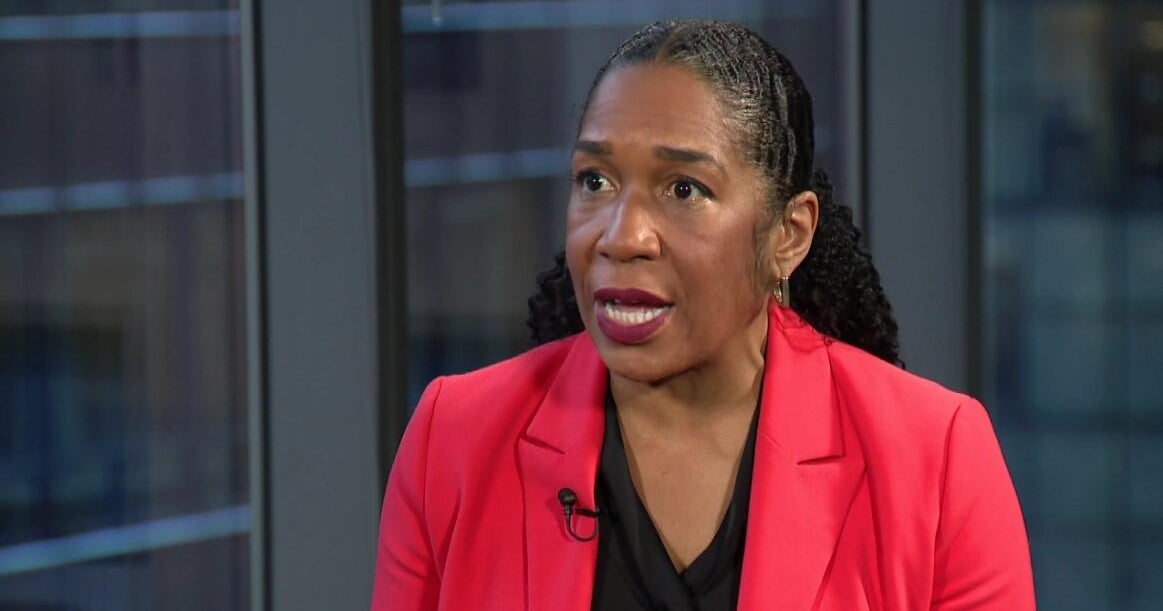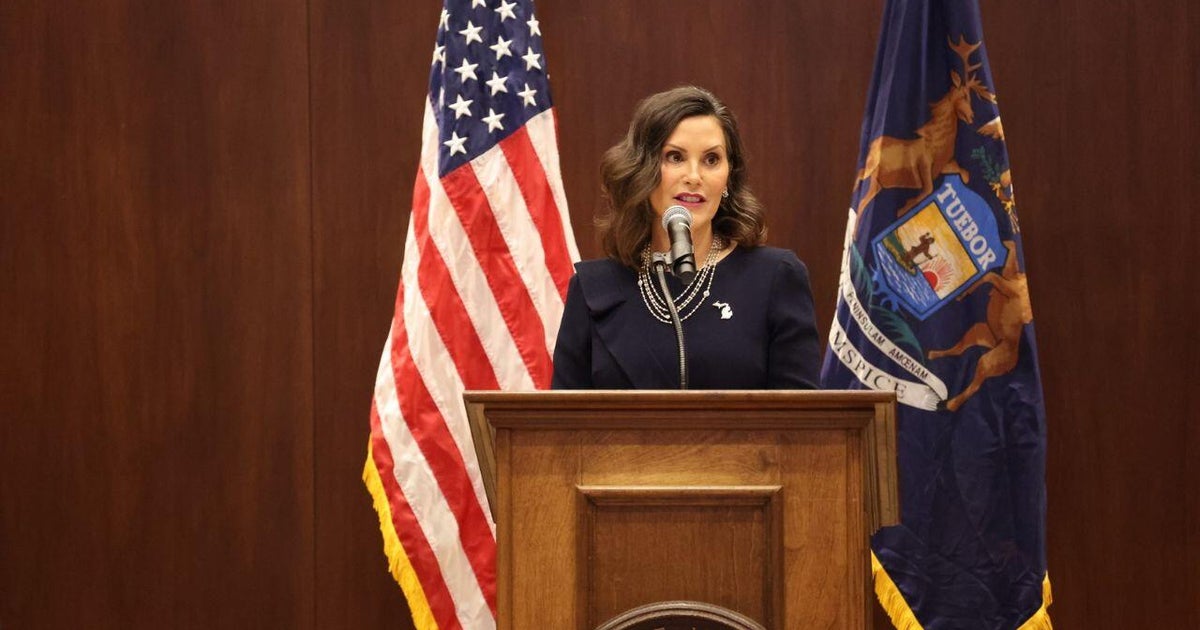NY Senate OKs Budget Bill To Boost State Minimum Wage To $15
ALBANY, N.Y. (CBSNewYork/AP) -- The New York Senate on Friday overwhelmingly passed a budget that includes a measure to gradually raise the state's minimum wage to $15.
The Republican-controlled chamber voted 61-1 for the final bill after working through the night to pass other parts of the $156 billion spending plan for the fiscal year that began Friday.
"We knew we could lift millions out of poverty if we just stayed focused,'' said Sen. Andrea Stewart-Cousins, leader of the Senate's Democratic minority. "It's a good day, even if it is a very, very long day.''
The Democrat-controlled Assembly, which adjourned early Friday, was set to meet following Friday afternoon briefings to begin debate on the wage bill.
Cuomo said the minimum wage hike would be good for the economy in itself.
"If you give someone on a minimum wage a raise, do you know what they do with it? They spend it," Cuomo said. "They don't put it in the bank. They need it."
The raise goes into effect gradually, not immediately. In New York City, the wage will reach $15 in three years, and four years if a business has fewer than 10 employees. The wage would climb to $15 on Long Island and in Westchester County in six years.
The wage would increase more gradually upstate, hitting $12.50 in six years.
Further increases to $15 upstate would be tied to economic indicators like inflation and set by state budget and labor officials.
"What we've designed is a calibration mechanism that can be adjusted in the future when you know what the economy is doing in the future," Cuomo said.
Sen. Martin Golden, a Brooklyn Republican, said the minimum wage hikes have different time lines and they'll watch its impact on businesses. The legislation beginning in 2019 directs state budget officials to analyze the economy in each region of New York and the effect of the wage increases statewide to determine whether to temporarily suspend scheduled hikes.
Meanwhile, business groups warned that the increase would force businesses to raise prices, cut positions and accept reduced profits.
"This unprecedented minimum wage mandate on employers --- will ensure that New York's business climate will remain one of the worst in the nation, even as our tax burden remains among the highest in the nation,'' said Greg Biryla, executive director of Unshackle Upstate, a group that advocates for the upstate economy.
"This increase is still too much for many businesses," the Business Council of New York said in a statement. "The last thing employers need is higher state-imposed costs."
The Business Council went on to say this law was agreed to while leaving out "meaningful business cost reductions" like targeted small business tax cuts.
Reaction to the minimum wage increase was also mixed.
Bodega employee and married father of two, Basam Al Shaweah, said he works hard at full time making $9.75 an hour
"We don't deserve to get that," he told CBS2's Andrea Grymes. "We deserve to get more. We have a lot of responsibilities back home, a lot of family."
But many business owners like Mohamed Fathelbab say they simply can't afford the raise.
"No, with the business going on today? No," he said. "We struggle here to make a dollar."
The governor said beginning in 2019, the state can suspend scheduled increases if economic conditions warrant it.
The extra funds for the wage hike and other new initiatives came through a combination of lowering state debt, an improving economy, and a spending cap.
The bill also included a provision for 12 weeks of paid family leave for New York workers and a tax cut for middle-class filers. The wage portion contains a series of "calibrated'' increases that would boost the paychecks of 2 million workers across New York state.
Sen. Jeff Klein, leader of the chamber's Independent Democratic Conference, said family leave starting in 2018 will be phased in, from eight weeks to 10 weeks to 12, giving workers time to bond with newborns and take care of sick children or elderly parents. It will be funded by payroll deductions starting at 70 cents a week and rising to $1.40. Benefits will range from 50 to 67 percent of average weekly wages.
Meanwhile, the tax cuts will mean an average of an extra $767 in the pockets of joint filers earning $40,000 to $150,000, and an extra $1,829 for families with incomes of $150,000 to $300,000.
The tax rates for the affected taxpayers currently range from 6.45 percent to 6.65 percent. The rates would gradually drop to 5.5 percent by 2025.
"I think we took care of working men and women across the state," said Senate Majority Leader John Flanagan (R-Smithtown). "I think we focused on real working people and tried to find ways to help them."
As CBS2 Political Reporter Marcia Kramer reported, some said they were already thinking about how to spend the tax windfall, as they see their income tax rates drop to the lowest level in nearly seven decades.
"Probably my credit card bills," one taxpayer said.
"I'd love to spend clothes; buying stuff like that," another said.
"If I had extra money in my pocket, I'd be able to help my mom," a third said.
The bill also includes critical job protection so that New York workers can be confident they will have a job to return to after taking leave.
The NYCLU says that recent research and survey data demonstrate that providing workers with paid leave has positive effects on long-term productivity, including improvements in employee motivation, recruitment and retention.
"We applaud New York legislative leaders and the Governor for their work to make New York a leader in upholding values of fairness and equal opportunity," said Katharine Bodde, policy counsel at the NYCLU. "This is a victory for all New Yorkers including workers, families and businesses."
Flanagan noted other provisions, including a boost in state aid to public schools to $24.8 billion, and eliminating a state clawback of some aid.
The budget also increases funds for city schools, charter schools, mass transit including the Long Island Rail Road and the Metro-North Railroad, roads and bridges, combating the heroin crisis, help for seniors with prescription drug costs, and water quality improvements.
New York City dodged several bullets, avoiding plans to increase Medicaid costs and cuts to the city university system.
Mayor Bill de Blasio, who has often feuded with Cuomo, was quite laudatory.
"It's a very good day for New York. I commend the governor and the legislature," de Blasio said.
But as Kramer reported, de Blasio is not out of the woods when it comes to Albany. He needs the Legislature to extend mayor control of the schools before the session ends in June.
Senate Republicans, who are often critical of de Blasio, said they want to hold public hearings on the issue of school control.
Also still to be dealt with are a laundry list of possible ethics reforms suggested after the convictions of former Assembly Speaker Sheldon Silver and Senate Majority Leader Dean Skelos.
(TM and © Copyright 2016 CBS Radio Inc. and its relevant subsidiaries. CBS RADIO and EYE Logo TM and Copyright 2016 CBS Broadcasting Inc. Used under license. All Rights Reserved. This material may not be published, broadcast, rewritten, or redistributed. The Associated Press contributed to this report.)







